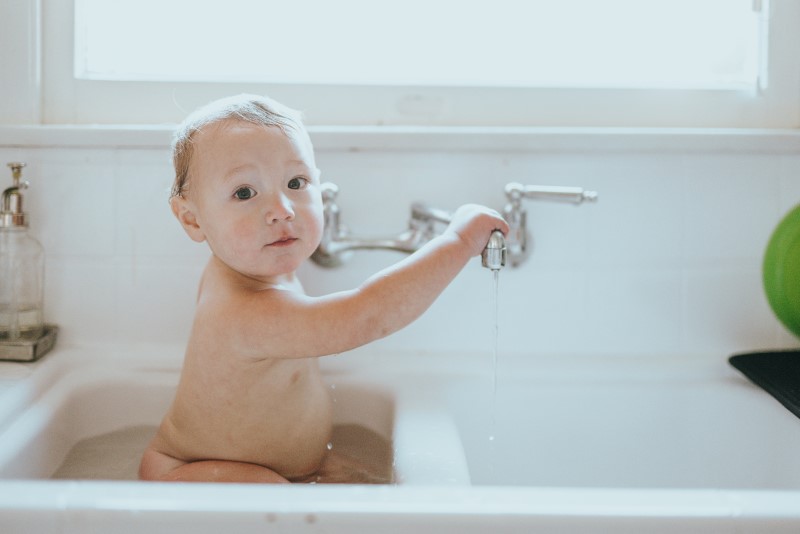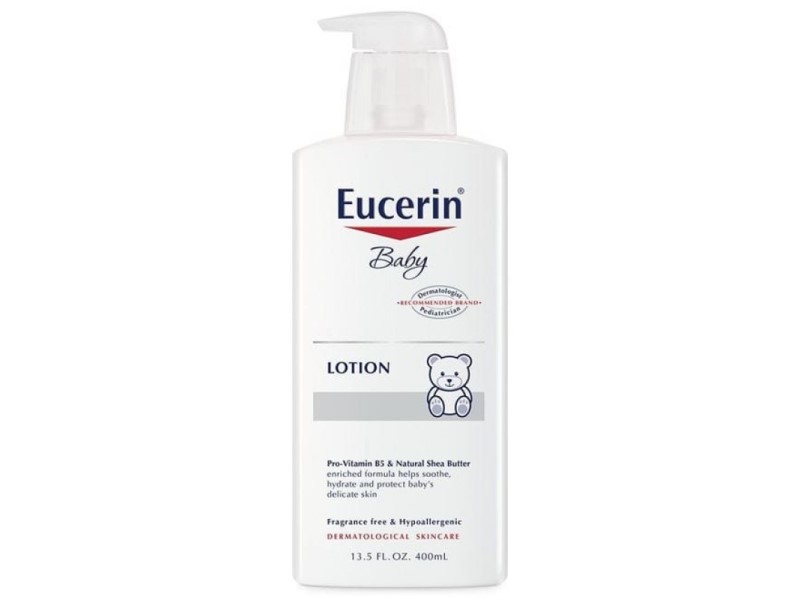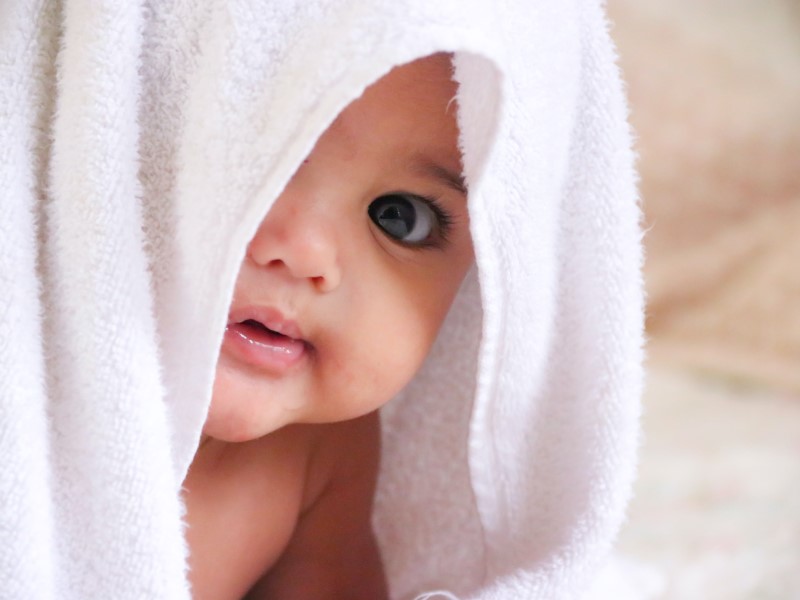Babies are known to have soft and smooth skin, but did you know that it is also highly sensitive? That is why baby skin care is crucial and requires extra TLC. After all, their skin is not fully mature at birth due to the lack of sebaceous and sweat glands. On top of that, there are changes in skin hydration, water binding, and acidity when newborns transition from the womb into a new environment at birth.
During infancy, they will undergo the maturation process and gradually adapt to this new environment. Hence, caring for babies’ skin (along with a mother’s touch) is important to healthily develop this sensory organ. But before we dive into some baby skin care tips, let’s take a look at how different a baby’s skin is compared to an adult.
The Difference Between Baby And Adult Skin

The way you would care for adult skin is different from a baby because of some key structural differences in the skin. That said, skin functions remain the same throughout life. Here are some of them:
- Acts as a barrier to water loss, light, and other irritants.
- Controls infection.
- Protects against physical harm.
- Provides sense of touch, pain, and temperature.
- Regulates body temperature.
In babies, the stratum corneum and epidermis is about 30% thinner than an adult’s. Transepidermal water loss is also significantly higher, meaning it absorbs more water but loses it just as fast too. Another reason for dry skin in babies is a lack of natural moisturising factors (NMFs), which is what binds water to the skin to keep it hydrated. Here’s a comparison chart for easier reference:
| Baby Skin | Adult Skin |
| Faster rate of water loss | Slower rate of water loss |
| Less NMFs (natural moisturising factors) | More NMFs (natural moisturising factors) |
| Less melanin pigments | More melanin pigments |
| Smaller corneocytes | Larger corneocytes |
| Thinner stratum corneum | Thicker stratum corneum |
| Thinner epidermis | Thicker epidermis |
Baby Skin Care Tips To Keep Your Newborn’s Skin Healthy
Bath Time Should Be Brief

Amongst all the baby skin care tips, the first rookie mistake to avoid is a lengthy bath session or overbathing your baby. Unlike adults, babies don’t need a regular shower. In fact, doing so can further dehydrate their already dry skin as it strips the natural oils that are protecting their skin. Hence, it’s better to keep your baby’s bath time short and brief. Remember to use low-irritant soap or body wash and a hydrating body lotion after to replenish moisture.
Check (And Change) Diapers Frequently To Prevent Diaper Rash
Babies are prone to diaper rash, and it doesn’t help that the area is naturally more irritable. This is caused by several factors like overhydration, increased pH, and friction, among others. Hence, frequently checking their diapers (and changing them if it’s soiled) will help prevent diaper rash. If they happen to be subjected to it, apply barrier creams to treat and soothe the area. For safer and gentler care, opt for high-absorbency disposable diapers and use alcohol-free baby wipes to clean the area.
Gently Massage With Baby Oil Or Lotion

Giving your baby a massage helps them relax, sleep better, and ease crying, among other physical and emotional benefits. It’s also a great way for mothers to bond with their babies (don’t forget to talk or sing to soothe them with your voice). To kill two birds with one stone, ensure you’re using baby oil or lotion when gently massaging their skin, be it the face, abdomen, or limbs. This way, you’re simultaneously moisturising their skin too!
Use Baby-Friendly Products
Since babies and adults have different skin types and structures, be sure to always use products that are specifically formulated to care for baby skin. Tip: Go for allergen-free and tear-free shampoos and conditioners, as well as gentle products that will help preserve the mildly acidic pH of baby skin. Never use adult products on baby skin as their formulation may be too harsh for newborns.
Stick To Fragrance-Free Products

It is common for infants to be allergic to fragrances. Hence, it’s best to opt for products that are fragrance-free and specially formulated for sensitive baby skin care. However, if you do choose a scented product, ensure that the product has undergone extensive research. It is also safer if the scents are naturally-derived, such as from organic essential oils.
Ensure Products Are Low On Preservatives
While preservatives are useful for extending the shelf life of skincare and bodycare products by preventing the contamination of microbes, it’s important to minimise contact with your baby’s delicate skin as they may cause skin irritation. That said, low levels of preservatives are deemed safe. On the other hand, applying a microbe-contaminated product onto baby skin can lead to serious infections.
Read And Understand Product Labels
To be on the safe side, always check the product labels. Also, do go the extra mile by learning about how the product functions, what the right dosage is, as well as the correct usage and application. For example, if your baby has an allergy, you should look for allergen-free labels, instead of something that says fragrance-free or unscented. This is because unscented products can still contain fragrance molecules whereby they’ve been masked or neutralised with other chemicals.
Take Extra Care Of Baby’s Skin With These Tips

Despite having a super soft, smooth, and supple texture, newborns actually have sensitive skin that’s prone to dryness and developing rashes. Hence, do keep these baby skin care tips in mind during bath time routines or when shopping for baby toiletries. Most importantly, your top priority should be picking clinically-proven products that are specially formulated for their delicate skin.
As your baby grows up, there will be quarterly milestones in their first year that parents can look forward to. And by the fourth or sixth month, solid food should come into the picture, so here are some homemade baby purees you can make!

